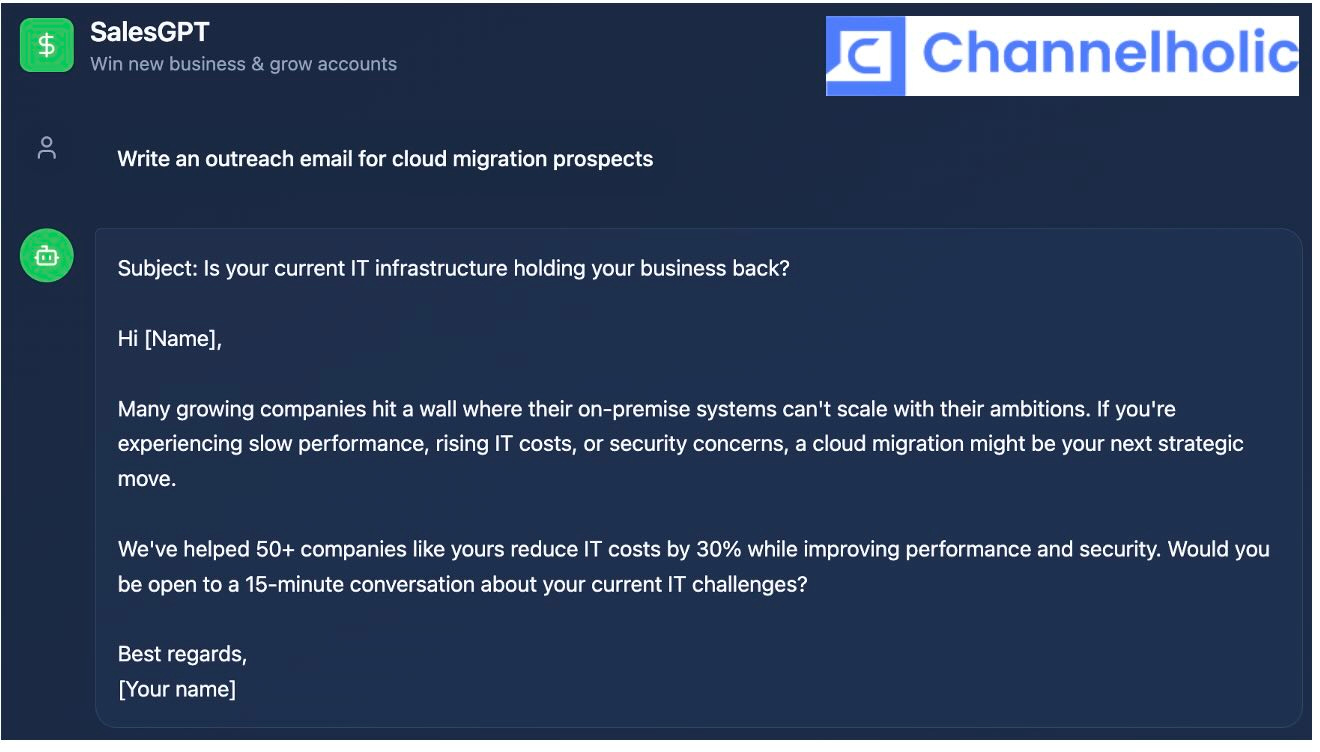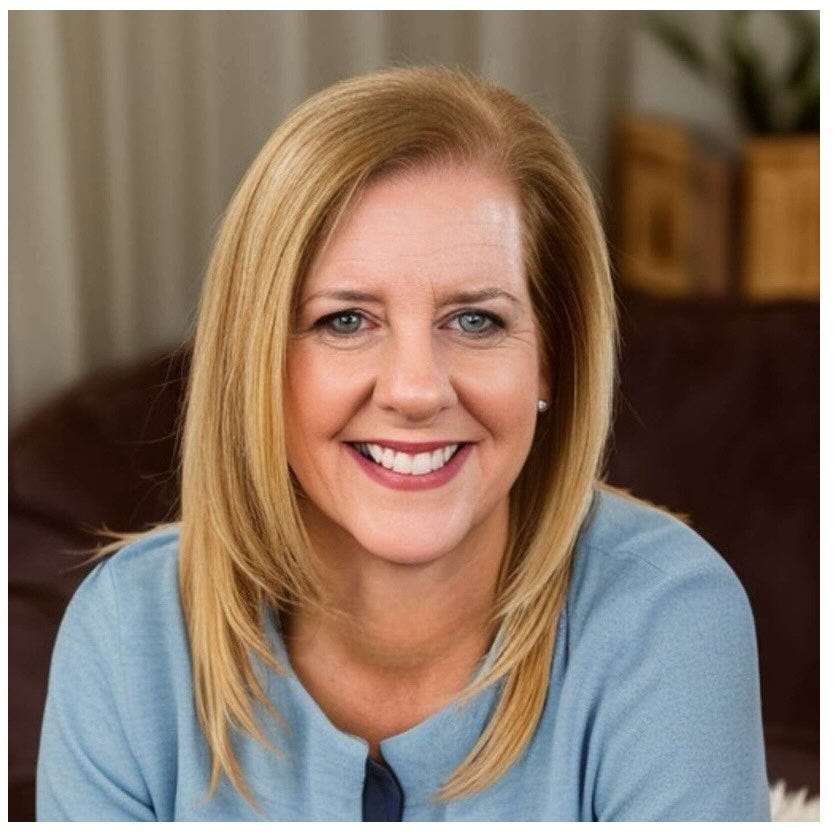PartnerGPT and ChannelGTM Try Sponsorships Versus Subscriptions
The new AI assistants for MSPs are using the same monetization scheme OpenAI is exploring.
I now know of something Kathryn Rose has in common with Sam Altman.
Actually, I know three things, come to think of it. The first two are that both Rose and Altman are entrepreneurs with a lot of interest in generative AI. I’ll get to the third after first introducing you to PartnerGPT.ai, the AI assistant for MSPs, resellers, and solution providers introduced by Rose a few weeks ago. Like Theo, it’s a domain-specific AI service. Unlike Theo, it’s decidedly not agentic.
“Agents do automations,” Rose (pictured) says. “These are assistants.”
There are five in all at present for sales, marketing, ops, security, and HR that partners can use to write emails, build marketing campaigns, prepare for a QBR, role play sales meetings, and more. Each one, Rose emphasizes, is pre-trained on knowledge she’s accumulated across two decades of work as a consultant, author, speaker, and founder of organizations like channelWise and The Channel Marketing Association, which introduced an AI assistant tool of its own last week called ChannelGTM.ai.
The partner-specificity of the training both services draw on is the key to the vision behind them. “I kept seeing this research come out that only 25 to 30 percent of partners were really even using [AI], mostly because it was just garbage that was coming out,” Rose explains. PartnerGPT.ai and ChannelGTM.ai, by contrast, deliver informed, experience-based responses.
They’re also, it’s worth noting, completely free. PartnerGPT.ai and ChannelGTM.ai are both available to anyone at no cost thanks to alliance agreements with AI-for-MSP vendor Synthreo in the former case and AI-first channel marketing platform Structured in the latter, plus sponsorship deals with Liongard and a handful of other vendors. Sponsors never see user input, Rose emphasizes, and partners hear from sponsors only when resources they’ve provided offer relevant assistance with ongoing chats.
“The way I look at it is everybody wins,” Rose says. Synthreo and Structured get brand exposure, sponsors get a chance to tell potential partners—gently—about their products, and Rose herself makes a little money on the sponsorship fees.
Unless, of course, it turns out to be a lot of money, which is where the third similarity between Rose and Altman enters the picture. Rose’s timing on launching PartnerGPT.ai is interesting in that it comes as OpenAI is recruiting hundreds of employees away from Meta in connection with an apparent move toward introducing advertising as a monetization vehicle for ChatGPT.
It’s not hard to understand the thinking behind that strategy either. Building LLMs is expensive work that subscription fees haven’t underwritten terribly well. The best estimates available suggest OpenAI is on track to pull in about $13 billion this year. That comes out to a little over $16 annually for each of ChatGPT’s roughly 800 million weekly active users, which has to be frustrating for Sam Altman and team as they watch AI players like Meta and Microsoft pull in huge sums via ads.
Rose, to the best of my knowledge, isn’t consciously following in OpenAI’s footsteps. But what if it turns out the best way to generate big money in AI solutions for managed services providers is selling sponsorships rather than subscriptions?
I can’t think of anyone else asking that question right now, and am eager to learn the answer.




